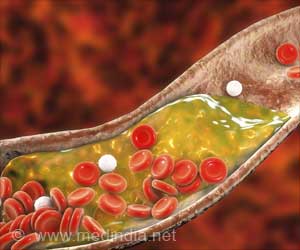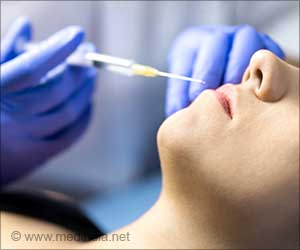World Heart Day is celebrated annually on 29th September to raise awareness of cardiovascular diseases and prevention methods. The theme for World Heart Day 2020 is ‘Use heart to beat cardiovascular disease.’

- World Heart Day is celebrated every year on the 29th September
- The main objectives are to create awareness of cardiovascular diseases and provide preventive measures to help reduce the burden
- The theme of World Heart Day 2020 is ‘Use heart to beat cardiovascular disease’
- World Heart Day also focuses on cardiovascular disease and COVID-19
Read More..
Cardiovascular Disease (CVD)
Cardiovascular diseases are a group of diseases which refers to any disease of the heart, vascular disease of the brain or disease of the blood vessel. CVDs include :- Coronary heart disease – A disease that affects the blood vessels supplying to the heart muscle ( ex: heart attack )
- Cerebrovascular disease – A disease that affects the blood vessels supplying to the brain (ex: stroke)
- Peripheral arterial disease - A disease that affects the blood vessels supplying the legs and arms)
- Rheumatic heart disease – A disease that damages the heart muscle and heart valves from rheumatic fever which is caused by streptococcal bacteria
- Congenital heart disease - A disease that results in malformations of the heart structure at birth
- Deep vein thrombosis and pulmonary embolism – They cause blood clots in the leg veins, which can dislodge and move to the lungs and heart
Risk Factors of Cardiovascular Disease (CVD)
There are many risk factors associated with CVD. They can be categorized as:- Modifiable risk factors – Unhealthy diet, physical activity, high blood pressure (hypertension), cholesterol, tobacco use and obesity.
- Non-modifiable risk factors – Diabetes, family history, age (above 55 years), gender, ethnicity, socioeconomic status
Warning signs of Heart Attack
The warning signs of a heart attack are:- Discomfort in the center of the chest that lasts for a few minutes or that goes away and comes back.
- Shortness of breath chest discomfort or without chest discomfort
- Discomfort in other areas of the upper body that can result in pain or discomfort in the back, in one or both arms, neck, jaw or stomach, left shoulder, back
- Nausea
- Lightheadedness
- Breaking out in a cold sweat
Warning Signs of Stroke
Stroke is a medical emergency, and if someone experiences these signs, it is crucial to get medical help immediately.- Sudden weakness or numbness in the face, leg, arm, especially in one side of the body
- Sudden trouble with speaking, understanding and confusion
- Sudden trouble seeing in one or both the eyes
- Sudden trouble in walking
- Dizziness, loss of balance and coordination
- Sudden severe headache with no known cause
Facts About Cardiovascular Disease (CVD)
- Globally, cerebrovascular diseases are the number 1 cause of death as more people die from CVDs rather than any other cause
- In 2016, around 17.9 million people died due to cardiovascular diseases
- In 2016 cardiovascular diseases were responsible for 31% of all deaths and 85% of these deaths were due to heart attack and stroke
- 80% of cardiovascular deaths occur in low- and middle- income countries
- Every 36 seconds, one person dies from cardiovascular disease in the US
- Coronary heart disease is the most common type of cardiovascular disease, killing 365,914 people in 2017
- Around 6.7% of adults above the age of 20 have coronary artery disease
- In the US, someone has a heart attack every 40 seconds
- About 1 in 5 heart attacks are silent
World Heart Day
World Heart Day is celebrated every year on the 29th September. The objectives of World Heart Day is:- Create awareness on the burden of cardiovascular diseases (CVDs)
- Encourage the adoption of healthy eating habits and lifestyle
- Reduce the global prevalence of high blood pressure
- Create awareness on the importance of physical activity to reduce heart disease risk
- Develop a plan to control smoking to reduce the risk of heart disease
History of World Heart Day
World Heart Day was established by the World Heart Federation (WHF) and World Health Organization (WHO) in 1999.Antoni Bayés de Luna, president of the WHF from 1997-1999 initiated the annual event.The first World Heart Day was observed on 26th September 1999. World Heart Day was initially celebrated on the last Sunday of September. However, from 2013, World Heart Day is celebrated annually on the 29th September.
Heart Day 2020 – UseHeart to Beat Cardiovascular Disease
The theme for the World Heart Day 2020 is to ‘Use heart to beat the cardiovascular disease.The theme Use Heart is about using:
- Your head – Understand healthy lifestyle, healthy food habits change your behavior to have a better quality of life
- Your influence – Make an impact and spread the information on the importance of heart health and ways to prevent it
- Your compassion – Support the most vulnerable people in the society, especially during COVID-19, as they are at an increased risk of contracting the virus
Cardiovascular Diseases (CVD) and COVID-19 – ‘Use Heart to Fight COVID-19’
People with heart disease are more vulnerable and are at a higher risk of contracting COVID-19.Since the start of the COVID-19 pandemic, there is a decline in the number of heart patients seeing care with hospitals and doctors as they were scared of contracting the virus.
Some of the guidelines which would help COVID-19 heart connection patients are:
- Separation of COVID-19 patients based on the severity of the disease in a separate hospital or ward depending on the infrastructure available
- Patients need to be designated based on health risks such as diabetes, hypertension, prior respiratory disease or cardiovascular disease, cancer, to identify patients at a higher likelihood of developing severe COVID-19
- Special attention and separate facilities need to be provided for COVID-19 cardiac patients and non-COVID-19 cardiac patients
The risks of heart attack and stroke outweigh the risk of getting COVID-19.
People can also use telemedicine, but it should not be considered as a replacement for in-person care.
Tips to Prevent Cardiovascular Disease
Cardiovascular disease can be prevented by following a healthy lifestyle by following strategies such as:- Quit smoking – One of the best things for a healthy heart is to stop smoking or using smokeless tobacco. The risk of heart disease can drop as little as a day after quitting.
- Physical Activity - Daily physical activity for at least 30 to 60 minutes will help lower the risk of heart disease.
- Healthy diet – Follow a healthy diet rich in vegetables, fruits, lean meats, fish, legumes, beans, low-fat dairy fat-free dairy, healthy fats, whole grains. Limit the intake of salt, sugar, alcohol, saturated hat and processed carbohydrates.
- Maintain a healthy weight – Obesity to several diseases, including cardiovascular disease. Calculate your body mass index (BMI) and make sure you have a healthy percentage of body fat.
- Sleep properly – Sleep for at least for 7 hours a day as lack of sleep increases the risk of obesity, heart attack, hypertension.
- Manage stress - Cope with stress in a healthy way such as meditation, relaxation, exercises to improve health
- Get regular health screening – Screening for blood pressure, cholesterol levels, diabetes would help detect risk factors early and help manage heart disease risk.
References:
- World Heart Day 2020 - (https://www.world-heart-federation.org/world-heart-day/world-heart-day-2020/)
- Heart Disease Facts - (https://www.cdc.gov/heartdisease/facts.htm)
- Use Heart to Fight COVID-19 - (https://www.world-heart-federation.org/world-heart-day/cvd-covid-19/)
- World Heart Day - (https://www.britannica.com/topic/World-Heart-Day)
- Strategies to prevent heart disease - (https://www.mayoclinic.org/diseases-conditions/heart-disease/in-depth/heart-disease-prevention/art-20046502)
Source-Medindia















